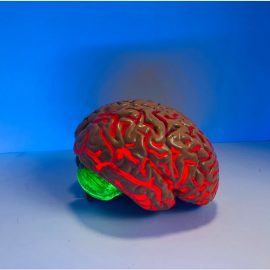
Why do people with ADHD have memory issues? How can you prevent yourself from getting distracted?
Phil Boissiere conveys that ADHD affects memory formation. ADHD makes it difficult for people to focus their attention consistently on the right things, and memories can only be formed when you’re paying attention.
If you struggle with ADHD memory issues, keep reading for a strategy to help you stay focused.
Forming Memories Through Focused Attention
Boissiere explains that working memory, an executive function, involves recalling information about the task you’re currently doing, without which you’re unable to finish the task. For example, if you’re cooking, you use working memory to recall which steps you’ve already completed and which ingredients you’ve already put in, so you stay in the right place in the recipe.
(Shortform note: In addition to helping you complete tasks, working memory allows your brain to decide what’s important and organize information for long-term memory. Long-term memory stores important skills, behaviors, and events from our lives. People who have trouble with working memory may find that their long-term memories feel jumbled and disorganized, or they may struggle to form long-term memories at all.)
Boissiere adds that distraction and switching between tasks weaken working memory. ADHD’s memory issues stem from people becoming distracted easily and thus struggling with working memory, making it more difficult to complete tasks. For instance, you might get distracted by something on the TV while cooking and forget that your food is on the stove until you smell it burning. Then, the dinner you made is ruined, your house smells like smoke, and you have to spend extra money on takeout.
(Shortform note: In Eat That Frog!, Brian Tracy asserts that multitasking isn’t ideal anyway, even if you don’t have ADHD. What seems like multitasking is just switching your attention back and forth between different things. After being interrupted, it takes 17 minutes for the average person to refocus on the task. The more interruptions you experience and the more often you switch your attention, the more mistakes you make and the less you get done. (For people with ADHD, this could be compounded by the fact that their working memory isn’t as adept at storing information about their current tasks.) The tendency to start and stop a task repeatedly can increase the time needed to complete it by up to 500%.)
Tell Yourself the Story of Your Task
According to Boissiere, one way to prevent distraction and keep track of the steps of a task is to tell yourself a story detailing what you’re about to do before you begin. Practicing this technique can improve your working memory in general.
Choose a relatively simple task or chore, such as cleaning off your desk. Then, narrate the task using a beginning, middle, and end. This narrative should include every step it takes to finish the task. You can write it down if you find that helpful. Once you’ve created the complete story of the task, actually do the task.
For example, before cleaning your desk, you might say to yourself, “First, I’m going to gather all the papers that can be thrown away and put them in the trash. Then, I’m going to file the papers that I need to keep. After that, I’ll remove the other items from my desk and dust them. Finally, I’ll wipe the surface of my desk with a cleaning solution and put everything back in its proper place.”
| Why Narratives Help With Memory (and What You Can Add to Them) The narrative structure for storing information suits the brains of neurotypical and neurodivergent people alike. Some neurology research suggests that our brains naturally store memories and organize information in a narrative structure because it suits our brains’ love of patterns. Narratives create a clear map onto which our brains can overlay new information, using the structure of beginning, problem, resolution, and ending. We also learn this structure early on when our families and teachers read or tell stories to us. Along with telling yourself the story of your task, it may help you to also visualize completing the task before you begin. In Decoding Greatness, Ron Friedman states that visualizing your performance of a task assists you in several ways: It allows you to lock down important details, prepare for stressors and challenges you’ll likely encounter, and strategize potential solutions for these challenges. He suggests imagining your performance as specifically as you can, including the time and place, the sensory details you expect to encounter, and the nuances of the behaviors you’ll need to perform. |






